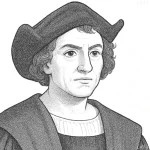“I have been influenced in my thinking by both west and east.”

- July 18, 1918 – December 5, 2013
- Born in South Africa
- Politician, lawyer
table of contents
Quote
“I have been influenced in my thinking by both west and east.”
Explanation
This statement reflects Nelson Mandela’s openness to diverse influences in shaping his worldview. Mandela, while deeply rooted in his African identity and struggle for freedom, acknowledged the importance of drawing wisdom from both Western and Eastern philosophies and experiences. The “West” likely refers to the liberal, democratic ideals that influenced his early legal training, as well as his exposure to Western political thought and human rights discourse. Meanwhile, the “East” could refer to the influence of Asian philosophies and the experiences of anti-colonial movements in countries such as India, which had inspired many leaders in the global South. Mandela’s embrace of ideas from both directions reflects his broad-minded approach to the complexities of global justice, freedom, and equality.
Mandela’s thinking was also shaped by his time in prison, where he read extensively about revolutionary movements worldwide, including Gandhi’s nonviolent resistance in India and the Marxist ideas that had inspired many liberation struggles. His exposure to Eastern ideas of community, selflessness, and spiritual resistance complemented his belief in individual liberty and democracy, rooted in Western thought. These influences played a role in how he navigated South Africa’s political challenges, choosing a path that emphasized reconciliation and forgiveness over violent revolution, much like Gandhi’s teachings of nonviolence and peaceful protest.
In modern terms, Mandela’s willingness to incorporate diverse influences into his thinking speaks to the importance of cross-cultural dialogue in addressing global challenges. It is a reminder that political and social solutions can be found through integrating ideas from various traditions—be it the Western principles of individual rights or the Eastern traditions of community solidarity and spiritual resilience. By recognizing the value in both, Mandela crafted a philosophy of leadership that sought to unite rather than divide, and his balanced approach to global thought remains a model for contemporary leaders grappling with issues of justice, equality, and peace.
Would you like to share your impressions or related stories about this quote in the comments section?



